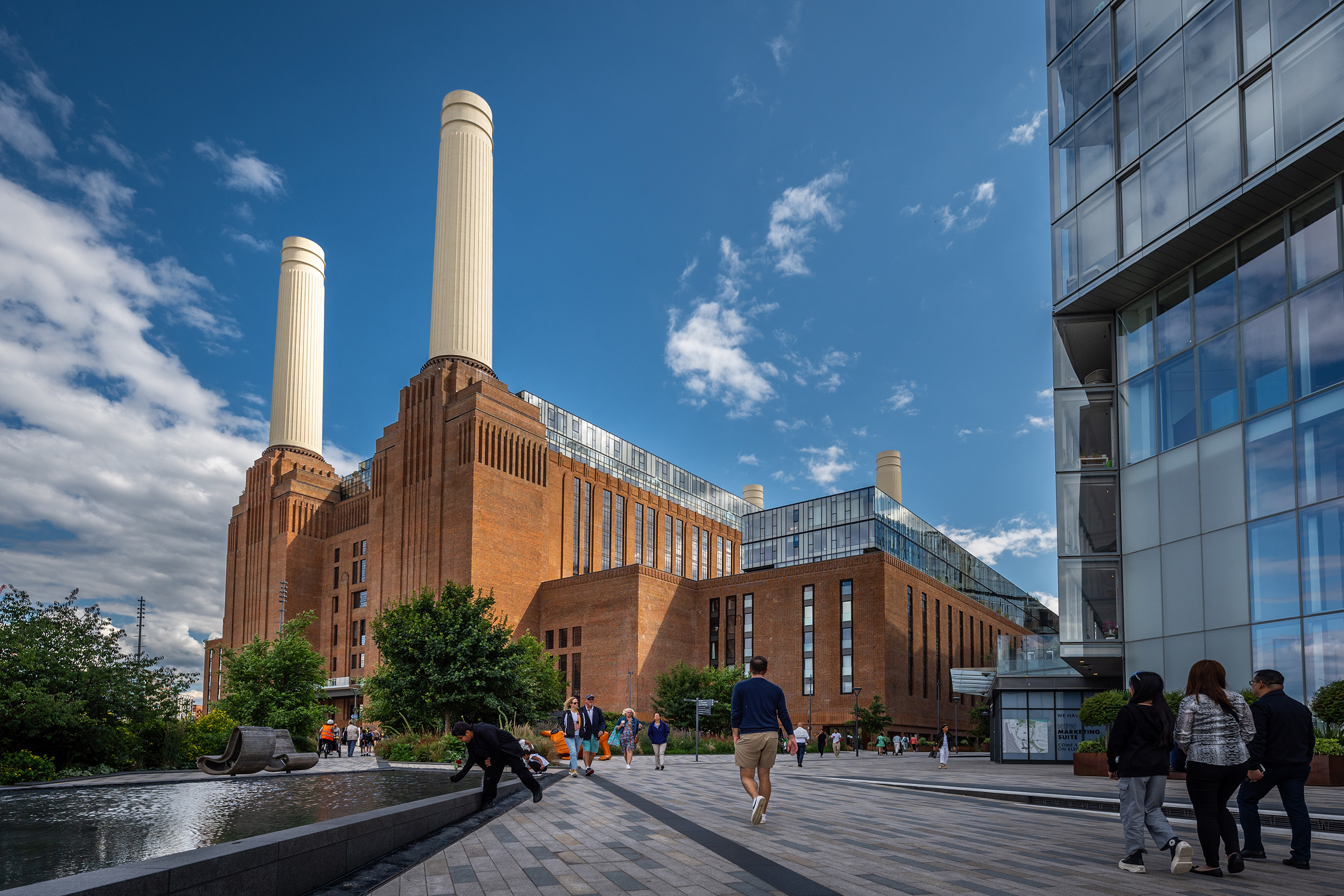The chimneys of Battersea Power Station have been through a lot in the past four decades. After it was closed in 1983, developers considered turning it into a theme park, then a football stadium. Three years ago, it finally reopened to the public as a high-end shopping mall. Now, it might go through yet another iteration – forming the basis of one of the largest real estate deals since the beginning of the pandemic.
This week, Permodalan Nasional Bhd and the Employees Provident Fund, two Malaysian funds that together bought the office and retail components of the building as part of a restructuring in 2019, confirmed that they have appointed the French bank BNP Paribas to advise on a potential sale of those assets.
If a deal did go ahead, it would send encouraging signals to London’s floundering commercial real estate market. The 2019 deal valued it at £1.6bn, and it’s likely Battersea’s owners would expect a higher offer. But even a deal at its 2019 valuation would make it the biggest core commercial real estate deal since the beginning of the pandemic, according to data compiled by Knight Frank for The Observer.
In a statement, the two funds said they were still “fully committed” to Battersea and had “no immediate plans to proceed with any exit”. But they added: “Given the iconic nature of the Battersea asset, from time to time we receive proposals from parties interested in investing in the project [and] would evaluate any such proposals carefully.”
Potential buyers include large sovereign wealth funds and institutional investors. Sovereign wealth funds from the Middle East, Asia Pacific and North America are all thought to be hunting for deals in London right now.
Battersea would be a particularly attractive asset because of the mix of high-end occupiers, including Apple, which in 2023 opened its 500,000 sq ft UK HQ, taking roughly 40% of the office space available at the scheme, while retailers in the mall include Aesop, Lululemon, Me+Em and the world’s only Transformers and Peppa Pig stores. But Nick Symons, a partner at FMX Urban Property Advisers, warned that the site’s upmarket occupiers would be wary of any new owner changing the scheme’s high-end focus.“You want to make sure that whoever follows in the footsteps of the current owners doesn’t try a dramatically different path and suddenly the footfall drops,” he said.
Still, a sale of Battersea would bring relief to the UK’s real estate market, marking the end of what has been an unusually quiet few years, said Shabab Qadar, head of London research at Knight Frank. “The acceleration in interest rates put a block on those large transactions, so the market has seen a withdrawal of the big pension funds and insurance funds that would typically acquire those buildings,” he said. Sovereign wealth funds, meanwhile, are “waiting for those institutional investors to be more active in the market”.
There are already signs a recovery is coming. Investors were offered a glimmer of hope this week, when the US healthcare investment giant Welltower paid £5.2bn for the real estate portfolio of Barchester in a deal thought to be the world’s largest care home transaction.
Qadar suggested that as uncertainty continues around markets that have historically been regarded as low-risk, such as sovereign debt, deals like this could become more attractive to institutional investors. “Government bonds are an extremely risky investment at the moment, whereas real estate, particularly prime real estate, has characteristics that are almost better than investing in a government bond right now,” he said.
“London is a safe haven in times of economic turbulence,” he added. But “it hasn’t had those opportunities for a while”.
Newsletters
Choose the newsletters you want to receive
View more
For information about how The Observer protects your data, read our Privacy Policy
Photography by Getty



